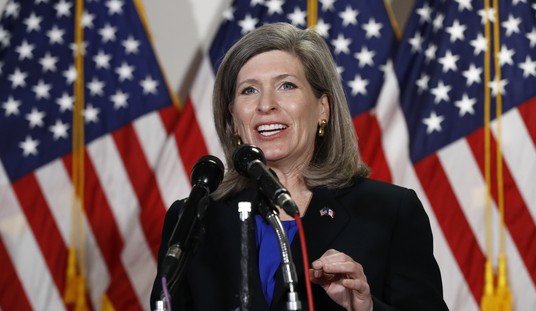Perhaps a few other figures on Capitol Hill should be worried as well. Richard Burr, the Republican chair of the Senate Intelligence Committee, found out the hard way that the Department of Justice has taken allegations of insider trading during the COVID-19 pandemic very seriously. The Los Angeles Times reported last night that the FBI has seized Burr’s cell phone and other computer records as investigators scrutinize stock transactions that took place while and other members of Congress got briefed on the pandemic.
Needless to say, the decision to target Burr wouldn’t have come from a low-level field office:
Federal agents seized a cellphone belonging to a prominent Republican senator on Wednesday night as part of the Justice Department’s investigation into controversial stock trades he made as the novel coronavirus first struck the U.S., a law enforcement official said.
Sen. Richard Burr of North Carolina, the chairman of the Senate Intelligence Committee, turned over his phone to agents after they served a search warrant on the lawmaker at his residence in the Washington area, the official said, speaking on condition of anonymity to discuss a law enforcement action.
The seizure represents a significant escalation in the investigation into whether Burr violated a law preventing members of Congress from trading on insider information they have gleaned from their official work.
It turns out that the FBI had already served a warrant for Burr’s data, only not on Burr himself. They went for his cellphone because they’d already found something in Burr’s iCloud account:
A second law enforcement official said FBI agents served a warrant in recent days on Apple to obtain information from Burr’s iCloud account and said agents used data obtained from the California-based company as part of the evidence used to obtain the warrant for the senator’s phone.
Burr hasn’t commented on this development, nor has anyone else on Capitol Hill, but perhaps they should plan on getting a visit from the FBI, too. Burr wasn’t the only one who had some interestingly prescient stock moves in the early days of the COVID-19 crisis. NBC News reminds of a few names that popped up in ProPublica’s review of transaction records:
Disclosure records also show that three other senators sold major holdings around the same time, including Dianne Feinstein, D-Calif., Kelly Loeffler, R-Ga., and James Inhofe, R-Okla., according to The New York Times.
Loeffler has defended the sales and said, “investment decisions are made by multiple third-party advisors without my or my husband’s knowledge or involvement.” Her husband is chairman of the New York Stock Exchange.
A Feinstein spokesman in March said that the senator did not sell any stock and that “the transactions you’re referencing were made by her spouse.”
The spokesman said all of Feinstein’s assets are in a blind trust, and it’s been that way since she came to the Senate.
If her spouse is managing the portfolio, how “blind” can it be? Besides, former Rep. Christopher Collins pled guilty to an insider-trading scheme in which he passed along inside information to family members and friends. A blind trust managed by one’s spouse doesn’t exactly provide a solid alibi. Loeffler’s arrangement makes a more robust defense agains such allegations, assuming it holds up.
In fact, that scenario might exist with Burr, too. ProPublica also noted that Burr’s brother-in-law also got lucky in stock market trading at the same time Burr did. This time, though, the issue of insider trading involves the other end of Pennsylvania Avenue:
Sen. Richard Burr’s brother-in-law, Gerald Fauth, dumped up to $280,000 in stocks on the same day Burr did, as the coronavirus began gaining a foothold in the US, ProPublica reported Wednesday.
In all, he sold between $97,000 and $280,000 in shares from six companies, including a number of stocks that were particularly hard hit when the stock market and US economy began cratering amid the pandemic, according to ProPublica.
Fauth also has a position on the National Mediation Board and was tapped for the post in 2017 by President Donald Trump.
Yikes. This might serve to help Trump, however, if anyone thinks to accuse him of going after Burr for other reasons. That’s not the kind of scandal Trump needs to amplify at the moment.
This raises another question, though. Normally, this type of transgression would be handled by Congress itself. The legislative branch has tangled with the executive-branch law enforcement agencies FBI and Department of Justice at times over corruption probes as violations of the separation-of-powers doctrine. That tension most notably arose during the long probe into Rep. William “Dollar Bill,” “Cold Cash” Jefferson, who was found with $90,000 in his freezer. What makes this different is that Congress itself passed a statute that makes such insider trading a crime rather than an ethics violation, opening the door to executive-branch-based investigation and prosecution.
That doesn’t mean that Congress has to cooperate, however. In order to make the case stick, the DoJ will have to find specific information Burr received from those briefings that were not publicly known and directly related to the trades he made. Will Congress allow the FBI to probe its deliberations to get that evidence? This might get spicier in the coming weeks, and Congress might have reason to quietly repeal that insider-trading bill after its first real application.







Join the conversation as a VIP Member